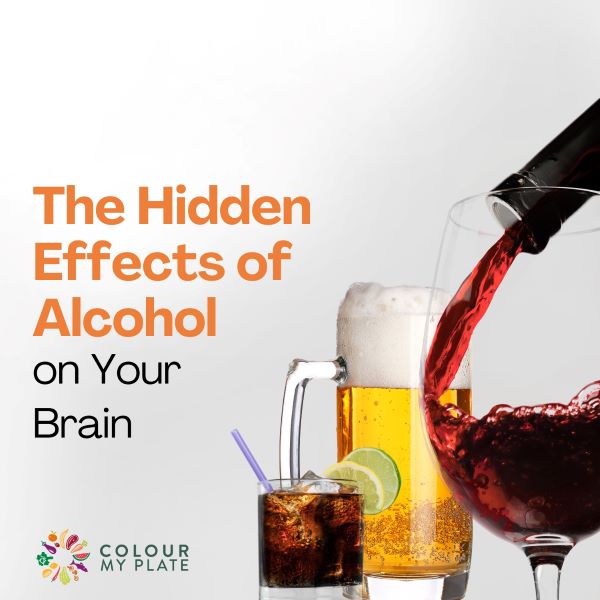
![]() 24 Sep 2024
24 Sep 2024
Ever wondered how that glass of wine or beer affects your brain? From light sips to heavy pours, alcohol has a profound impact on your mental state and cognitive functions. Whether you’re drinking to unwind, socialize, or fit in, it’s crucial to understand how alcohol interacts with your brain and what it means for your overall well-being. In this blog post, we’ll dive into the science of alcohol and discover how it reshapes your brain’s function, mood, and behavior.
The active ingredient in alcoholic beverages, ethanol, has notable effects on brain function. It primarily impacts the cerebellum, the part of the brain responsible for balance, coordination, and other complex motor functions. By altering the brain’s communication pathways, it disrupts normal brain activity and can influence cognitive functions and perception.
Alcohol impairs cognitive abilities, leading to a range of immediate effects such as confusion, slurred speech, and blurred vision. It also causes a loss of motor control, difficulty with hand-eye coordination, slower reaction times, balance issues, and problems with memory and reasoning. These disruptions make it hard to think clearly and move smoothly, ultimately resulting in decreased focus, reduced concentration, and lower productivity.
While some use alcohol to relax, it is actually a central nervous system depressant. It affects brain receptors, slowing communication between nerve cells and calming excitatory pathways which can lead to mood swings, fatigue, and nausea.
Furthermore, alcohol abuse often exacerbates conditions like anxiety and depression. Many individuals struggling with these issues turn to drinking in hopes of alleviating stress and enhancing their mood. Although drinking might offer temporary relief, it can unfortunately lead to a decline in overall mental health and create a difficult cycle to break.
It’s important to understand that alcohol, in any amount, poses health risks and can adversely impact cognitive functions, behavior, and overall mental well-being. Recognizing these effects highlights the importance of exploring healthier coping mechanisms and enjoying social interactions without the risks associated with consumption.

We noticed you haven't completed your delivery details.

Your message is sent